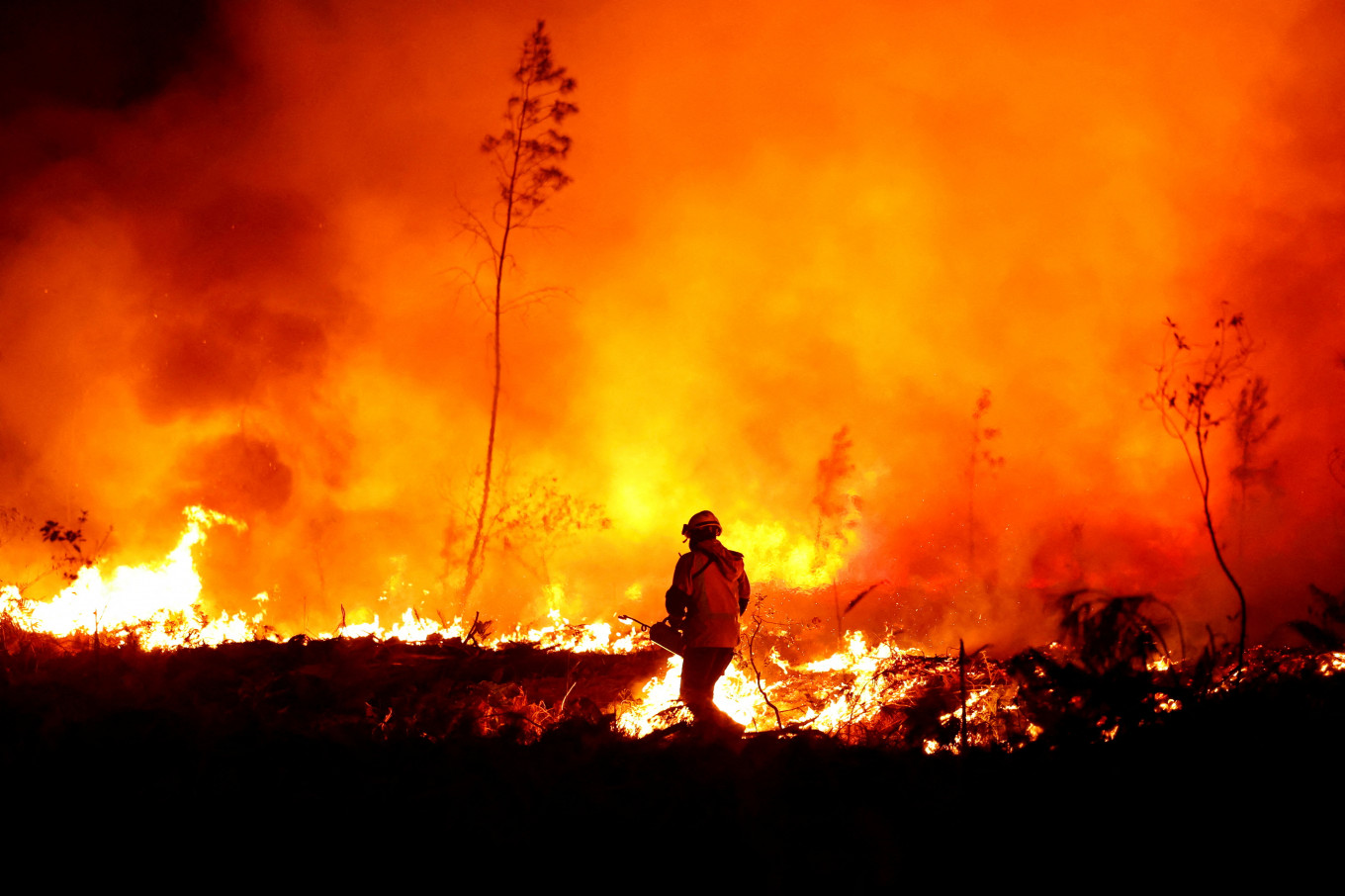Popular Reads
Top Results
Can't find what you're looking for?
View all search resultsPopular Reads
Top Results
Can't find what you're looking for?
View all search resultsEurope is burning
For the first time in history, temperatures in the United Kingdom reached more than 40 degrees Celsius, further disrupting lives that were already upended by COVID-19, supply chain disruptions, runaway inflation and the geopolitical tension brought about by the Ukraine war.
Change text size
Gift Premium Articles
to Anyone
Just when we thought that things could not get any worse this year, the unthinkable happens.
For the first time in history, temperatures in the United Kingdom reached more than 40 degrees Celsius, further disrupting lives that were already upended by COVID-19, supply chain disruptions, runaway inflation and the geopolitical tension brought about by the Ukraine war.
And for a country that built its society around mild temperatures, the disruption has been severe, ranging from disruption to railway services, delayed commercial flights and hospitalization of the elderly, to evacuation from fires burning grasslands and forests.
What happened in UK this week is not an isolated incident caused by some freak weather phenomenon.
It was a continent-wide event, with record temperatures being reported in France, Germany, Spain, Portugal and Greece.
In France, the country also registered new record high temperatures with 64 different regions reporting the mercury soaring above 40 degrees Celsius. Most of the highs were recorded along the western Atlantic coast.
Also this week, the Netherlands recorded its third-highest temperature since records began -- 39.4C in the southern city of Maastricht, while in Germany the hot summer so far has raised fears of drought, with farmers' associations warning of "major losses" in food production.
In Spain, where extreme temperatures and forest fires have taken place on a more regular basis, more than 500 people were reported to have died during a 10-day period.
During the same period, the country saw 190,000 hectares of forest go up in smoke, compared with 85,000 last year.
By the end of this year, it is expected that Europe could see more land burned by area than 2017, currently the worst recorded year for wildfires with nearly 1 million hectares lost.
As much as Europeans want this to be a one-off event, the sad truth about the latest case of Europe burning is that this is only the shape of things to come and that record temperatures and the ensuing misery will soon be the new normal for the continent.
And for this we only have climate change to blame.
Greenhouse gas emissions from human activities have heated the planet by about 1.2 degrees Celsius since pre-industrial times and this warmer baseline means higher temperatures can be reached during extreme heat events.
The United Nations' global panel of climate scientists (IPCC) has confirmed that climate change makes heat waves hotter and more frequent, especially for most continental regions.
Not only Europe, other continental regions like China and the United States are now also baking under extreme temperatures.
And now with the largest emitters of greenhouse gases all bearing the brunt of climate change, we can expect that they will have a fresh sense of urgency to cut emissions, however difficult the circumstances may be, especially with the energy crunch resulting from the Ukraine war.
More immediate problems like war and hunger should not divert our attention from dealing with the longer-term problem of climate change, if anything they should prompt us to find more breakthroughs.
If oil and gas are among the reasons for us to fight wars, then probably we should switch to renewables.
We should not fiddle while Europe is burning.











